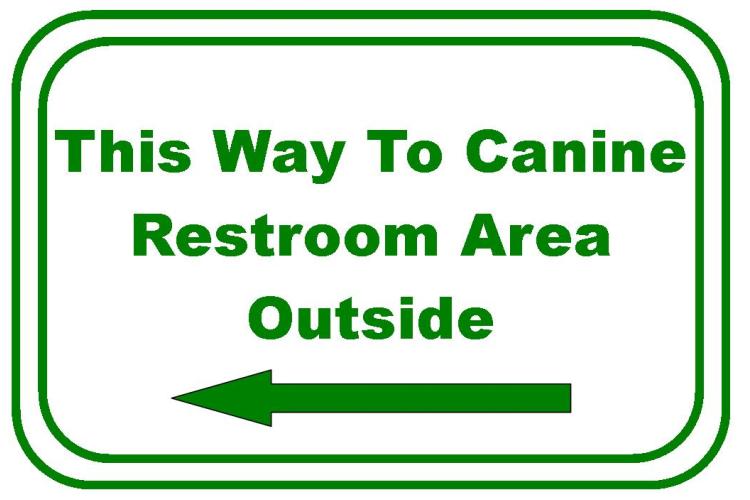House Training Techniques & Advice

Canine Pack Behavior Legacy
Understand that your puppy is preceded by thousands of generations of animals that survived primarily because they were part of a “Pack”. They used excretions to mark & define their territories. You are the key to change centuries of behavior, but it takes patience, time and effort. Some puppies learn quicker than others.
Limit Space Initially
Don’t give a puppy too much space at the outset. They want to keep their personal space clean and will learn to wait to relieve themselves if their space is limited. Many trainers suggest a travel cage for larger dogs. Other options are pens with movable walls & portable kennels. Another option: Keep a puppy near you at all times using a short leash.
Expand The Puppy’s Space Gradually
After a puppy is regularly successful in the initially restricted area, you can introduce new areas and spaces. If accidents begin to occur, retreat back to the more confined space again.The use of spreads to capture waste materials sends a wrong message on acceptable places to take care of business. In our opinion, these type items create more difficulties than they solve. Of course, some personal circumstances such as single people away at work daily creates special needs.
Reward Success
Take your puppy to the same outdoor area every time and give praise when the job is done within a short period of wait. Also provide nibbles & treats as the business is completed. If the puppy does not expel within the wait period, return it indoors to confinement and retry in 10 or 15 minutes. Some owners have hung bells from string on the door that the dog has learned to ring when it’s time.
Practice Makes Perfect
After periods of accident-free life, your house can be opened to full privileges.
Maintain vigilance and revert back to basic training methodology as appropriate.
Be Available Always!
During the potty training period, you must be ever-present to teach the puppy what is expected and to prevent accidents. Most puppies usually need to relieve themselves shortly after ingesting food or water, after exercise or waking from sleep. A useful rule is to take the puppy out every 2 hours or after any activity.
Avoid / Minimize Punishment
Housebreaking accidents will happen, however, you do not want to send a message that it is acceptable to do their duty while humans are in sight. When caught in the act, try and interrupt the event and take the puppy out to the elimination area immediately. Sanitize the areas of prior accidents immediately to eliminate any lingering evidence of prior mistakes. If your puppy has difficulty holding material for normal periods, it could indicate a possible medical problem. Consult a veterinarian.
Avoid Litter Boxes – News Papers – Pads
The use of spreads to capture waste materials sends a wrong message on acceptable places to take care of business. In our opinion, these type items create more difficulties than they solve. Of course, some personal circumstances such as single people away at work daily creates special needs.
Up And Out
During the night, be prepared to get up and take the puppy outside multiple times. Don’t force the puppy to try and hold the bladder for long, overnight periods.
